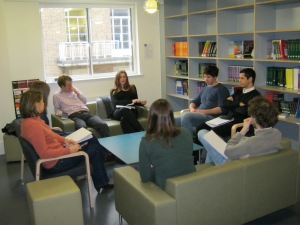I know some of you have been waiting for a while to hear in full about the outcomes of January’s pilot scheme for the Open Science Training Initiative (OSTI). Well – the moment is finally here. Those of you who’ve been keeping a close watch on the Open Science Training Initiative website may have noticed that the post-pilot report went live last Saturday. In case you haven’t happened upon it yet, you can download a copy here:
Click here to reach the download page for the Open Science Training Initiative post-pilot report.
I should also clarify that the link above isn’t for my year summary, Panton Fellowship report (which provides a more general overview of the Panton year and the open science work that’s entailed beyond the OSTI project). For that, you’ll need to look at blog postings for April…
Just so you know what to expect, the report:
- provides an outline of the general OSTI pattern,
- explains how this template was modified to suit the needs of the Doctoral Training Centres in Systems Biology and Life Sciences at the University of Oxford;
- delivers an in-depth analysis of the feedback from the auxiliary demonstrators and the students themselves, alongside my own perspectives as course leader.
You’ll also notice that it’s been a busy time for the OSTI website: videos from the pilot initiative have been appearing on the site over the last week, for those of you who’d like to see how the pilot went. Unfortunately we weren’t able to take any videos from the main work area, or from the daily supervisions, which is where the bulk of the teaching and discussion took place – as you can see from the photos below.
The videos you can see on the OSTI website only represent a small fraction of the pilot scheme: much of the teaching relies on discussion with individuals or small groups and the students’ hands-on application of licensing and other Open approaches is a core part of the learning process within the initiative.
Hopefully this heralds the start of an exciting new era for open science training, in which our graduates enter the research world fully equipped with experience in open science techniques and the confidence to implement these practices under their own judgment in their day-to-day working life!
Feel free to add your comments below if you have any thoughts on the post-pilot report, or feel that OSTI’s rotation-based learning techniques could benefit students in your institution.


